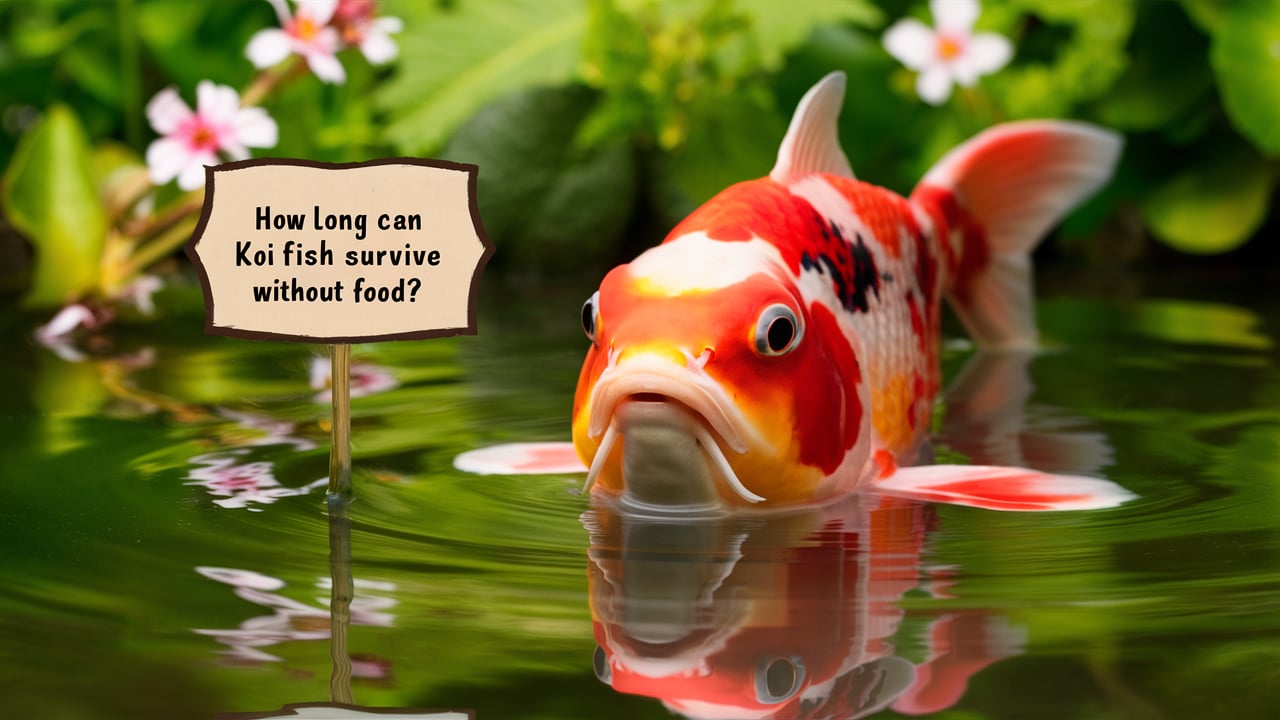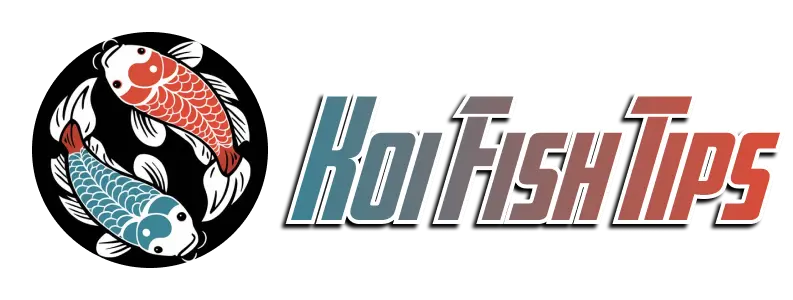How long can koi fish live without food? As a responsible koi keeper, understanding the intricacies of koi nutrition is crucial. This comprehensive guide, Koi Fish Tips will delve into the fascinating world of koi fish and their ability to withstand periods of fasting, providing you with the knowledge you need to keep your koi healthy and thriving.
The Importance of Food for Koi
Here’s a breakdown of why food is so important for koi:
Energy and Growth
- Koi are active fish, constantly swimming and exploring their environment.
- Food provides the necessary energy for their daily activities, including swimming, respiration, and maintaining body temperature.
- Adequate nutrition is essential for healthy growth, ensuring they reach their full potential size and develop their characteristic robust bodies.
Color Enhancement
- Koi are prized for their stunning colors, often a result of selective breeding.
- Specific nutrients, like carotenoids found in certain foods, contribute to the intensity and vibrancy of their colors.
- A well-balanced diet helps maintain the brilliance of their scales and patterns.
Immune System Support
- A healthy diet strengthens the koi’s immune system, making them more resistant to diseases.
- Proper nutrition helps them fight off infections and parasites, ensuring their overall health and longevity.
Digestive Health
- Koi have a specialized digestive system that requires specific types of food.
- High-quality food with appropriate protein and fat content promotes healthy digestion and prevents digestive issues.
Water Quality
- Excess food can pollute the water, leading to harmful algae blooms and poor water quality.
- Feeding koi the right amount of food helps maintain a clean and healthy environment for them to thrive.
How Long Can Koi Fish Live Without Food?
The answer to this question depends on several factors, including:
- The age and size of the koi: Younger and smaller koi have higher metabolic rates and require more frequent feeding. They are more susceptible to the effects of starvation.
- Water temperature: Koi’s metabolism slows down in colder water, allowing them to survive longer without food. Conversely, warmer water increases their metabolic rate, leading to a faster depletion of energy reserves.
- The health of the koi: Healthy koi with strong immune systems are better equipped to withstand periods of fasting.
- The availability of natural food sources: If the pond contains algae, insects, or other natural food sources, koi can survive longer without supplemental feeding.

How long can koi go without food in winter?
Koi can go surprisingly long periods without food in winter, thanks to their cold-blooded nature and the slower metabolism that comes with colder temperatures. However, the exact duration depends on several factors.
Factors Affecting Winter Fasting
- Water Temperature: The colder the water, the slower their metabolism, allowing them to survive longer without food. Ideally, the water temperature should be below 50°F (10°C) for them to enter a state of torpor.
- Size and Age: Larger and older koi have larger fat reserves, enabling them to endure longer periods of fasting. Younger and smaller koi are more vulnerable.
- Health and Condition: Healthy and well-nourished koi can withstand longer periods without food compared to those that are already weakened or undernourished.
- Water Quality: Clean and well-oxygenated water helps them conserve energy and survive longer. Poor water quality can accelerate their decline.
General Timeframes
- Short-term: Koi can typically survive for a few weeks without food in winter, especially if the water temperature is consistently below 50°F (10°C).
- Medium-term: In ideal conditions, they can potentially survive for several months without food, but this is not recommended.
- Long-term: It is not advisable to let koi go for extended periods without food in winter. Their health and well-being will be compromised, and they may become weak and susceptible to diseases.
Signs of Starvation in Koi
- Loss of weight: Koi may appear thinner, with their bones more prominent.
- Loss of color: Koi’s vibrant colors may fade as their body depletes its energy reserves.
- Lethargy: Starving koi may become sluggish and less active.
- Loss of appetite: Koi may refuse food even when offered.
- Behavioral changes: Koi may exhibit unusual behavior, such as swimming erratically or hiding.
What to Do if Your Koi Are Not Eating?
If you notice any signs of starvation in your koi, it is essential to take action promptly.
- Check the water quality: Ensure that the water parameters are within the optimal range for koi.
- Offer a variety of foods: Try different types of koi food to stimulate their appetite.
- Increase the frequency of feeding: Gradually increase the number of feeding sessions per day.
- Consult a veterinarian: If the problem persists, seek professional advice from a veterinarian specializing in fish.
Conclusion
While koi can survive for a limited time without food, it is essential to provide them with a regular and balanced diet. By understanding the factors that affect their ability to withstand fasting and recognizing the signs of starvation, you can ensure the health and longevity of your beloved koi.

Bài viết liên quan
What Do Koi Fish Eggs Look Like? Recognizing And Caring For Koi Spawn
Koi fish, with their vibrant colors and graceful movements, are a captivating sight in any [...]
Jul
Koi Fish Behavior: Tips For Keeping Koi Healthy And Beautiful
Koi fish, with their vibrant colors and graceful movements, have captivated aquarists and pond enthusiasts [...]
Jul
Can Koi And Goldfish Live Together? A Comprehensive Guide
Welcome to Koi Fish Tips, your ultimate guide to the captivating world of koi! If [...]
Jul